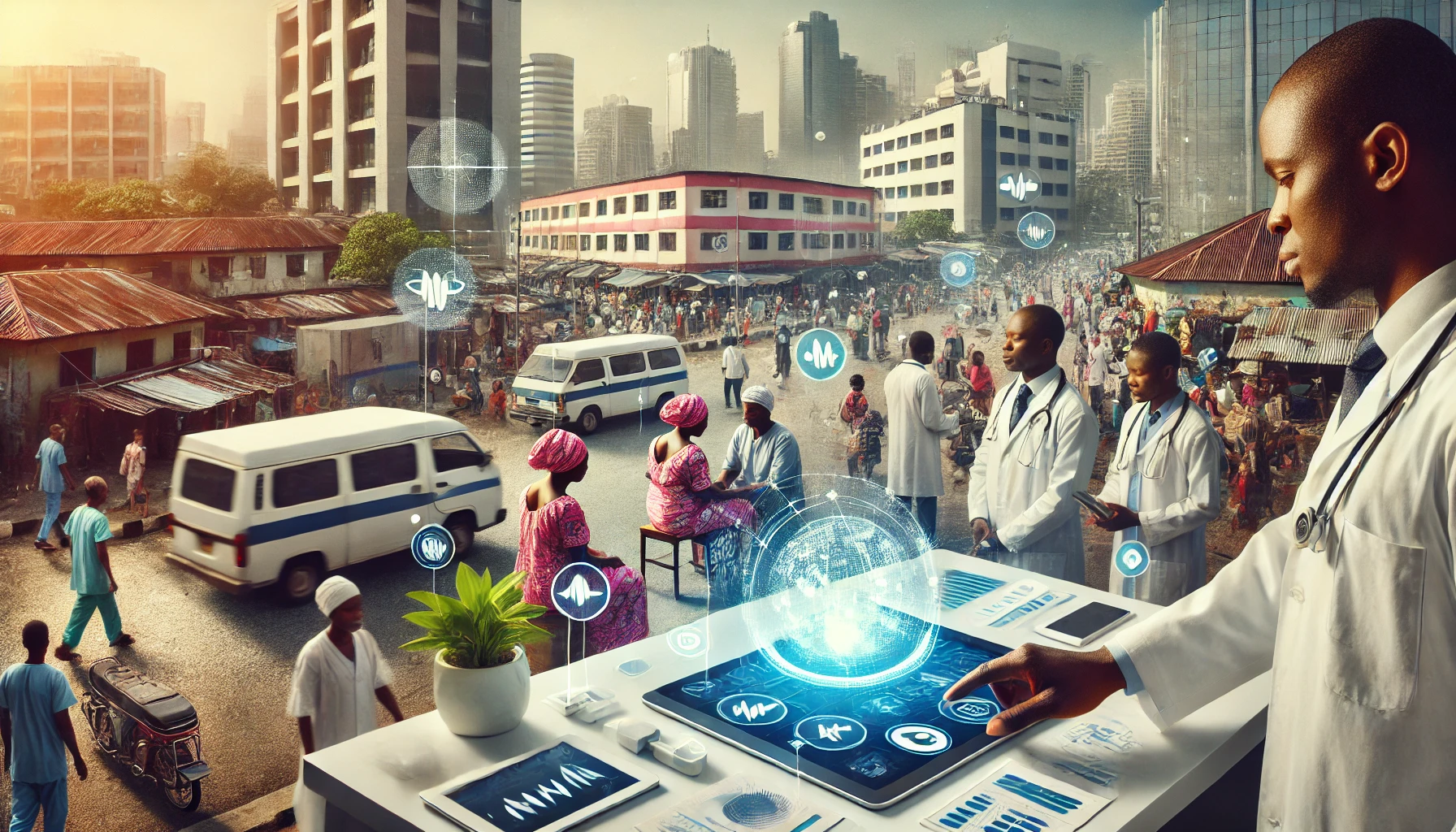Mobile Health in Lagos: Balancing Optimism and Hurdles in Public Healthcare Delivery
The study explores healthcare workers' perceptions in Lagos, Nigeria, about mHealth technologies, highlighting their potential to improve healthcare delivery through better communication and data management. However, challenges like inadequate infrastructure, insufficient training, and data security concerns hinder widespread adoption.

The research, conducted by scholars affiliated with SAGE Open Medicine, provides an in-depth look into the perceptions of healthcare workers in Lagos, Nigeria, regarding mobile health (mHealth) technologies. This study is particularly timely as digital solutions gain global traction in addressing healthcare challenges, especially in resource-constrained settings like Nigeria. Drawing from interviews conducted across six public health facilities, the study reveals both the opportunities and challenges posed by mHealth technologies. Healthcare professionals largely view mHealth as a transformative tool to enhance healthcare delivery but also highlight significant barriers to its adoption and effectiveness.
Revolutionizing Healthcare Through Mobile Technology
Participants acknowledged that mHealth has the potential to transform Nigeria’s struggling healthcare system by streamlining communication, improving efficiency, and delivering better outcomes for patients. For instance, disease surveillance, a critical aspect of public health, was cited as an area where mobile technologies could make a significant impact. With real-time data collection and sharing, healthcare workers believed that disease outbreaks could be tracked and managed more effectively, leading to timely interventions and improved care quality. Additionally, mHealth was seen as an effective tool for automating routine tasks, such as scheduling and communication, reducing the workload on overstretched healthcare workers and allowing them to focus more on patient care.
Challenges Undermining mHealth Integration
Despite this optimism, the study identified significant challenges that limit the success of mHealth initiatives in Nigeria. One of the foremost concerns was the lack of infrastructure in healthcare facilities. Many public health centers in Lagos face unreliable internet connectivity, inconsistent electricity supply, and limited access to modern devices. This infrastructural deficit not only hinders the adoption of mHealth but also exacerbates inequalities, particularly in rural and underserved areas, where these deficits are more pronounced. Without a robust technological foundation, the transformative potential of mHealth remains largely unrealized.
Another key challenge was the lack of adequate training for healthcare workers on the use of mHealth technologies. Many participants expressed a willingness to adopt these tools but admitted feeling ill-equipped to do so effectively. Training programs, where available, were often inconsistent and insufficient, leaving healthcare workers struggling to adapt. This gap in capacity building is a significant missed opportunity to fully utilize the potential of digital tools in public health. Furthermore, participants raised concerns about the lack of institutional policies and regulatory frameworks to safeguard patient data. Many healthcare workers worried about the risk of data breaches and unauthorized access to sensitive health information, which could undermine trust in these systems.
Addressing Broader Systemic Barriers
The research also pointed to systemic challenges that need to be addressed for mHealth technologies to thrive in Nigeria. Inadequate funding for healthcare and digital health initiatives was a recurring concern among respondents. Participants criticized the limited resources allocated to mHealth projects and called for greater investment to ensure their sustainability. Many felt that without financial backing, mHealth tools would remain underutilized and fail to reach their full potential. Additionally, cultural resistance within the healthcare sector was highlighted as another obstacle. Older healthcare workers, in particular, were sometimes skeptical about the efficacy of mHealth technologies or hesitant to adopt them due to unfamiliarity, further slowing down the pace of integration.
Unlocking the Potential of mHealth in Nigeria
Despite these challenges, healthcare workers expressed cautious optimism about the future of mHealth in Nigeria. Many believed that, with the right support, mobile technologies could significantly improve public health outcomes. To unlock this potential, participants recommended a multi-faceted approach. They called for increased investment in healthcare infrastructure to ensure reliable internet connectivity, electricity, and access to modern devices. Comprehensive training programs were also seen as essential to equip healthcare workers with the skills needed to use mHealth effectively. Moreover, establishing clear policies and regulatory frameworks was deemed critical to addressing concerns around data security and ensuring ethical use of these technologies.
Participants also emphasized the importance of collaboration among government agencies, private sector stakeholders, and healthcare providers to create an environment conducive to the successful implementation of mHealth initiatives. By addressing these systemic barriers, mHealth could bridge critical gaps in Nigeria’s healthcare system, particularly in areas like disease surveillance, patient monitoring, and data management. Such efforts would not only enhance the efficiency and effectiveness of healthcare delivery but also help ensure that the benefits of mHealth are equitably distributed across all population groups, including those in rural and underserved areas.
A Balanced Path Forward
The findings from this study highlight the dual-edged nature of mHealth technologies in Nigeria. On one hand, mobile health tools offer an unprecedented opportunity to address systemic inefficiencies, improve patient outcomes, and enhance public health monitoring. On the other, significant barriers such as limited infrastructure, inadequate training, funding constraints, and cultural resistance threaten to undermine their effectiveness. Policymakers, healthcare administrators, and technology developers must work together to overcome these challenges and create a sustainable ecosystem for mHealth in Nigeria. By fostering collaboration and addressing systemic issues, mHealth can play a pivotal role in transforming the country’s healthcare landscape.
At its core, this research underscores the cautious optimism of healthcare workers in Lagos, who recognize the potential of mHealth but remain realistic about the challenges ahead. By prioritizing investments in infrastructure, capacity building, and policy development, Nigeria can unlock the full potential of mobile technologies to improve healthcare delivery and public health outcomes. With a balanced and strategic approach, mHealth could become a cornerstone of Nigeria’s efforts to build a more efficient, equitable, and resilient healthcare system.
- FIRST PUBLISHED IN:
- Devdiscourse










